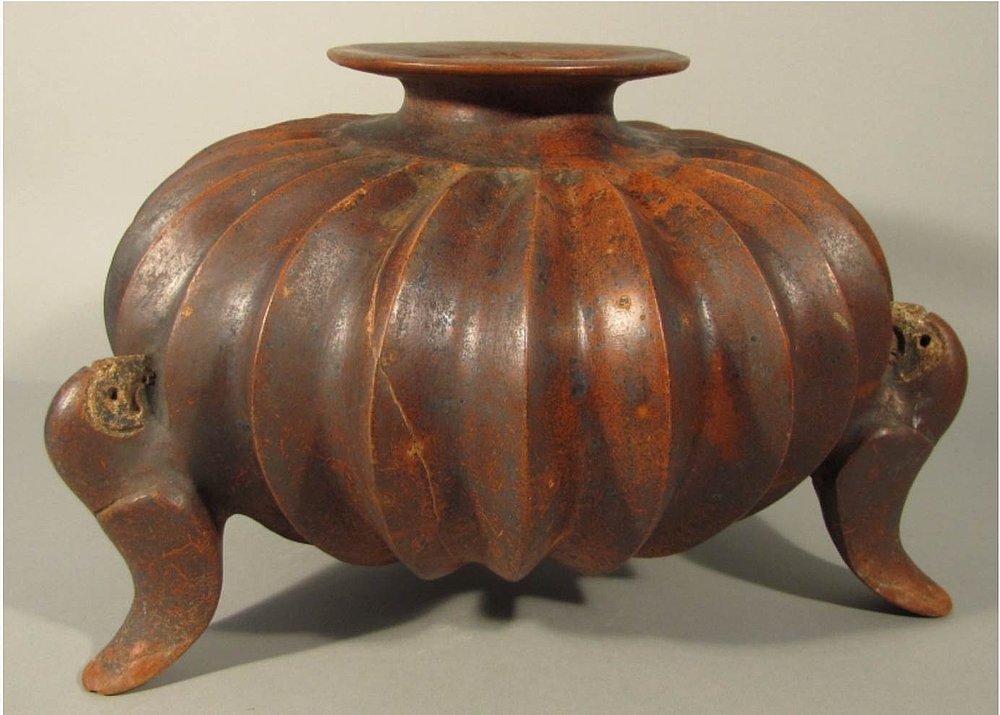Follow-up Program 4A Lab
Follow-up Program 4A Lab
4A Laboratory: Art Histories, Archaeologies, Anthropologies, Aesthetics (2019–2023)

4A Lab is a research and fellowship program designed in cooperation with the Kunsthistorisches Institut in Florenz (Institute for Art History in Florence) as a research institute of the Max-Planck-Gesellschaft (Max Planck Society) and the Stiftung Preußischer Kulturbesitz (Prussian Cultural Heritage Foundation) including their museums and research institutions. Further partners are Humboldt University of Berlin and Forum Transregionale Studien. It aims to create a space for dialog between—oftentimes separately operatin—institutions and disciplines. In particular, 4A Lab attempts to create a dialog between art histories, archaeologies, anthropologies/ethnologies, and aesthetic practices (4A), as well as other disciplines concerned with objects, practices, ecologies, and narratives. Central to 4A Lab is a fellowship program which will bring excelling doctoral and postdoctoral researchers from countries of Africa, Asia, the Americas, Australia and Europe to Berlin for a time period of 10 months, in the case of the doctoral fellowships up to a possible maximum of 2 years.
The program has an interinstitutional, interdisciplinary and transregional approach and explores transcultural dynamics with regards to aesthetic practices and material cultures, as well as social practices and representations in museums and elsewhere. The while, it takes up current object research issues testing new liaisons between social sciences, aesthetic practices and the disciplines of art history, archeology, and anthropology/ethnology. This dialog exceeds geographical and chronological boundaries, nevertheless it will be held in relation to the collections and object constellations of the museums and institutions of the Stiftung Preußischer Kulturbesitz (e.g. Ethnological Museum, Museum of Islamic Art, Museum of Asian Art). This takes place in cooperation with researchers of the museums and expert representatives of Forum Transregionale Studien, Humboldt University, and other institutions. The dialog of the annually reconstituted group of researchers will be structured by an annual theme which will be presented and discussed publicly in scientific conferences, workshops, and traveling seminars.
4A Lab responds to the social challenges which the “museum” as an institution is currently facing, insofar as it understands the museum as a dynamic, constantly reconstructed social space of knowledge production and aesthetic practices. This space needs to be redefined transgenerationally, for which new languages and forms of mediation and communication for multiple publics and different scientific communities will be required in the field of scientific research. Meanwhile, the program aspires a transversal networking and the opening of scientific languages in order to create a transregional dialog which includes differentiated terminologies for dealing with objects, artefacts, art, and material cultures.
4A Lab takes an active part in transdisciplinary discourses concerning a new understanding of provenance and the post-postcolonial responsibilities of museums and collections. It therefore investigates historical itineraries, complex topographies, and biographies of objects from transregional perspectives. The emphasis is not on the single object “in context” but on historically constituted and constantly shifting environments of objects in conflict with stability and mobility, as well as in their social, religious, political or aesthetical fields. This includes publics and actors. The museum reestablishes itself in intermediate forms of temporary exhibition, permanent display and exhibition, as well as storage in depots and archives, constellations of museum architecture and design, in relation to visitors of various constitutions and backgrounds, and finally in addition to digital environments. An ecological approach appears sensible to address these aspects; hence, the program will use this as a starting point. Dichotomies and classifications, serving the domestication of objects primarily in European cultures and languages, were critically revised in the last decades. Distinctions between nature/ culture and art/ craftsmanship or material culture, which have dominated the great museum structures or were supported by them, are now, at best, the framework for narratives to expose or nullify the former. 4A Lab demands new and open structures under these premises, which will be a focal point of discussion in relation to the opening of the Humboldt Forum. 4A Lab invites outstanding international doctoral and postdoctoral scholars to help shape these premises and lead an intercultural dialog across disciplines as a group.
4A Lab exceeds the museum research program in the narrow sense. It sees itself as an experimental space for dialog between the four mentioned disciplines, which will be realized in exchange with different institutions, in particular with the research institutions of museums, other research institutions, as well as academic research and teaching. The program strives to win over the expert representatives of the 4A and their neighboring disciplines to participate in this dialog and to create a close contact as well as new and creative forms of cooperation between the fellows and the universities.
Likewise, 4A Lab does not perceive itself as an exclusively historical project; or rather it does not function without looking ahead. Firstly, it explores the coexistence of different temporalities (e.g. in the museum). Secondly, the program pursues to visualize the fragmentation of time and the perceivable trajectories of possible futures respectively inscribed in objects, images, books, audio recordings or other configurations. Thirdly, transcultural object constellations and displays offer an archive or laboratory of material and medial, technological, artistic, and (proto-)scientific interpretations and formations of the world from early history of humankind to the present, which can be constantly acted out in new constellations virtually or in reality. Insofar, 4A Lab creates a space to re-examine the premises of design, and to re-think aesthetics of the future and the future of aesthetic practices.
4A Lab is a fusion, progression, and restructuring of the two research and fellowship programs Connecting Art Histories in the Museum (2009–2019) and Art Histories and Aesthetic Practices (2013–2019). It is based on the experience of past collaborations with the Staatliche Museen zu Berlin (State Museums of Berlin) and numerous other German and international research institutions.
Contact
4A Lab
Sigismundstraße 4
10785 Berlin/ Germany
Phone: +49 (0)30 266422042
E-Mail: 4a_lab(at)khi.fi.it
Website: https://khi.fi.it/4a-lab

